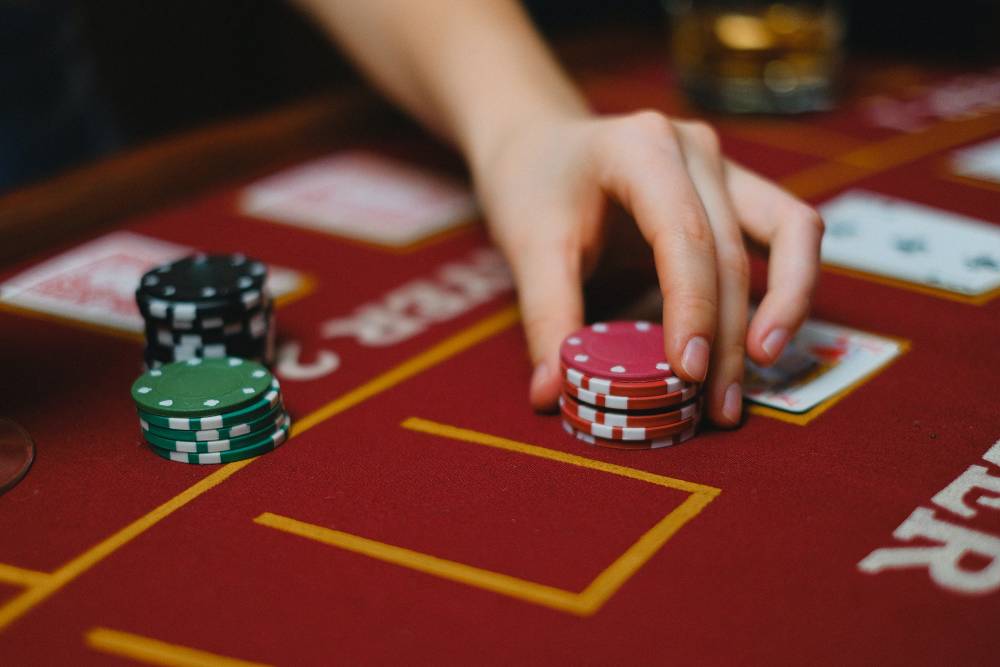Legendary Poker Moments
Written on . Posted in Gambling.

Poker gained notoriety in the Old West as a game anyone could play and anyone brave enough to bluff could walk away with the pot on a bust hand. Poker quickly became the card game of choice in the late 1800s, rapidly replacing Faro as the player’s choice for card games.
In the early 2000s, a new poker resurgence brought Texas hold ’em to the forefront of poker favorites, and new poker stars were born every minute. Huge poker tournaments like the World Series of Poker put players on the map and gave rise to the new poker hero. And with that fame came millions of dollars in wins to a lucky few.
If the game of poker weren’t exciting enough, the following tales of poker lore are the stuff of legends. From dangerous poker rooms in Old West taverns to modern-day world champion poker tournaments, these are some of the craziest poker games of all time.
Dead Man’s Hand
Some poker games in history were so wild they ended in the death of one of the players—and immortalized a poker hand in the process. In 1876 in the town of Deadwood, Dakota Territory (now South Dakota), Wild Bill Hickok was playing his last few games of poker.
After thoroughly trouncing Jack McCall at poker, Wild Bill told McCall that he couldn’t afford to lose another hand. The public humiliation was too much for the very drunk and very broke McCall, who swore at Wild Bill and stormed out of the tavern.
After a 24-hour bender, McCall swaggered back to the same tavern to find Wild Bill playing poker again. He then muttered ‘take that!’ and shot Wild Bill through the back of the head. Bill fell to the floor, dead.
Call it morbid curiosity, but someone noted the cards clutched in the dead man’s hand: a pair of black 8s and a pair of black aces. The other card was unknown, but from that moment on, that poker hand was known as the Dead Man’s Hand.
The Endless Poker Hand
Many poker legends arose in the Old West. Back in 1853 in Austin, Texas, two rich neighbors went toe to toe at the poker table. Old Man Morgan and Major Danielson were both enormously rich and enjoyed playing poker for many hours. One night after dinner, the two players both claimed to have been dealt big hands.
Danielson bet on his hand and Morgan raised. Witnesses described a “fast and furious” series of raises that went on until midnight, with a pot swelling to $10,000. They continued raising each other all through the night. Nobody called.
The two men took breaks only for food and rest and resumed playing the game for the entire week, continuing it until the end of the year. The stakes were now extremely high, with each man having bet his entire fortune, lock, stock, and barrel, on the never-ending poker game.
Even when both men died in 1872, they left instructions for their heirs to take up the game, which continued for decades. As long as the players drew income, they continued to raise the bet. Even their grandchildren were said to have continued betting on the endless poker hand.
The tall tale has no end, just like the poker hand, and nobody knows the outcome of the legendary game. But this tale proves two things: poker is a very competitive and obsessive game. And everything really is bigger in Texas.
The First WSOP
Leap forward in time to 1970 at Binion’s Horseshoe in Downtown Las Vegas. Binion’s was one of the old school casinos plying its trade long before the suburban Las Vegas Strip became the center of the gambling universe. Benny Binion was a Texas bootlegger during Prohibition and a notorious mobster in the 1940s.
After the organized crime family known as the Chicago Outfit moved into his territory, Binion fled to Las Vegas to reinvent himself as a casino entrepreneur. His famous casino, Binion’s Horseshoe, played host to some of the biggest poker legends of all time. Poker legends like fellow Texans Amarillo Slim and Doyle Brunson were drawn to the Horseshoe due to its high betting limits on poker tables.
Binion cleaned up his slice of Glitter Gulch, the Downtown Vegas area now known as The Fremont Street Experience. Benny Binion was the first casino owner to replace the sawdust-covered casino floors with carpeting.
But Binion’s legendary contribution to poker was the founding of the World Series of Poker, which he first hosted in 1970 at the Horseshoe.
He gathered the greatest poker players of the day to an event where they would vote on the greatest poker player. Each player voted for himself, so Binion ran the vote a second time, asking each player to vote on the second-best poker player.
He gathered the greatest poker players of the day to an event where they would vote on the greatest poker player. Each player voted for himself, so Binion ran the vote a second time, asking each player to vote on the second-best poker player.
As a result of the second vote, Johnny Moss was voted the first WSOP champion poker player. Since its humble beginnings in 1970, the WSOP has grown to become the pre-eminent poker tournament around the world. Benny Binion also created the Poker Hall of Fame to list the greatest players in poker as well as people who contributed to the game’s cultural importance.
Benny Binion never played poker very often or very well. Still, his name was added to the Poker Hall of Fame after he died, to honor his great contributions to the poker world. Another poker legend honored posthumously on the list was Wild Bill Hickock.
The Doyle Brunson Hand
Few poker legends can have a poker hand named after while they are still alive. Former Texas road gambler turned professional poker player Doyle Brunson is such a legend. Brunson, Amarillo Slim, and Sailor Roberts were three amigos from Texas who worked the dusty backroom card games until they discovered Las Vegas. Soon, they haunted Binion’s Horseshoe until they became legends in that town.
Doyle Brunson won several WSOP bracelets and millions of dollars playing poker at the tournaments. In 1976, Brunson won the Main Event title with a rather unimpressive pair of cards: a 10 and a 2. His opponent, Jesse Alto, had A-J, giving him an advantage on the A-J-10 flop. Brunson went all-in with his hand, and Alto called. Brunson caught runner 2s on the turn and river to give him a full house, beating Alto’s 2 pair.
A year later at the 1977 WSOP Main Event, Brunson faced opponent Gary Berland for the big prize. Brunson was dealt a 10 and a 2, the same hand he used to win the previous year’s title. Berland was dealt 8-5, giving him two pair on the 10-8-5 flop. When the 2 hit on the turn, Brunson now had a better pair than Berland.
But Berland went all-in, and Brunson called. Berland thought there was no way that lightning would strike twice for Brunson. But the river brought Brunson a 10, giving him another 10-2 full house—and the title prize!
That day a new poker hand was born: the Doyle Brunson hand (10-2).
This legendary winning hand from a real poker legend joins the colorful vernacular of poker nicknames, where Aces are ‘bullets’, and pocket kings are called ‘cowboys.’
This legendary winning hand from a real poker legend joins the colorful vernacular of poker nicknames, where Aces are ‘bullets’, and pocket kings are called ‘cowboys.’
Bluff of the Century
With a name like Moneymaker, you must win. Chris Moneymaker exploded onto the poker tournament scene in an unlikely way: he was the first person to win a seat at the prestigious WSOP via online poker. An amateur poker player from Atlanta, Moneymaker qualified for the WSOP live tournament through an $86 satellite tournament on the PokerStars website.
What followed was completely unexpected. In his first live tournament, the 2003 WSOP Main Event, Moneymaker went head-to-head against Sam Farha. Holding only a single King against Farha’s pair of 9s, Moneymaker went all-in. Farha did not call his bluff, and folded.
Moneymaker won the bracelet and the $2.5 million first prize. Nobody at the live event knew the significance of that moment, but those tuned into ESPN’s WSOP coverage soon would.
When ESPN aired its coverage of the game, viewers could see the hole cards on the screen. It was that moment when everyone knew that an amateur poker player bluffed his way into $2.5 million and took the title. Talk about the bluff of the century!
It was soon after Moneymaker’s win that poker popularity exploded. Now, almost anyone could see themselves taking the top prize. Poker became a game for the everyman—and everywoman.
The Legend Continues
The WSOP rages on despite its cancelation in 2020 due to COVID. Only the final Main Event was held live. The following year, the WSOP came back again, with a stronger emphasis on broadcasting over live attendance.
Still, poker players young and old flock to the tournament tables, hoping to grab a piece of the pie—and maybe even a legendary place in the poker books.





